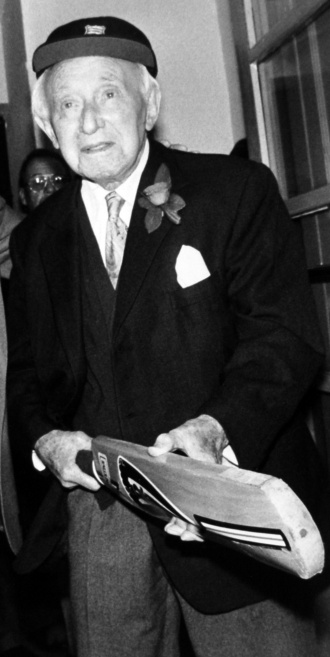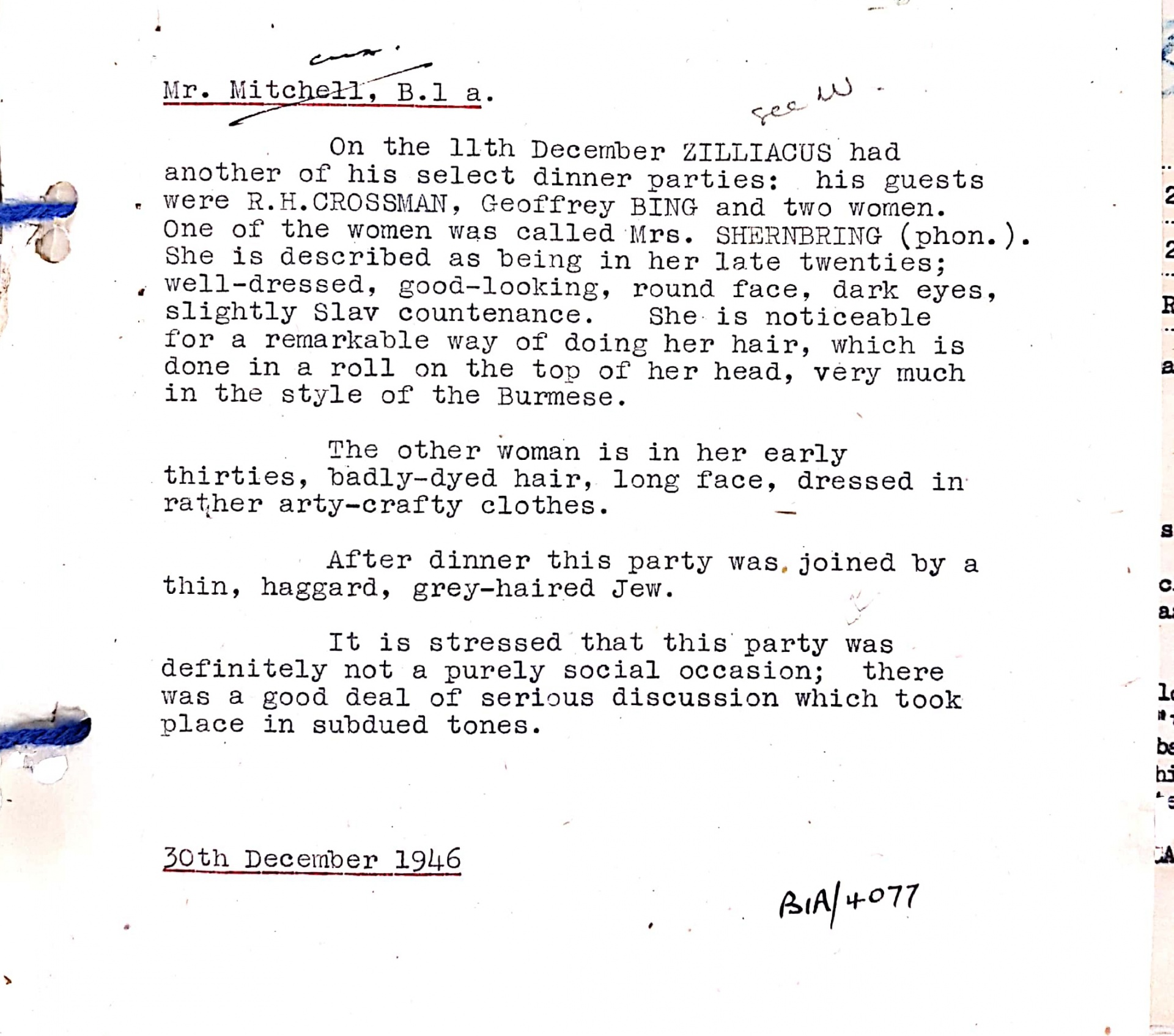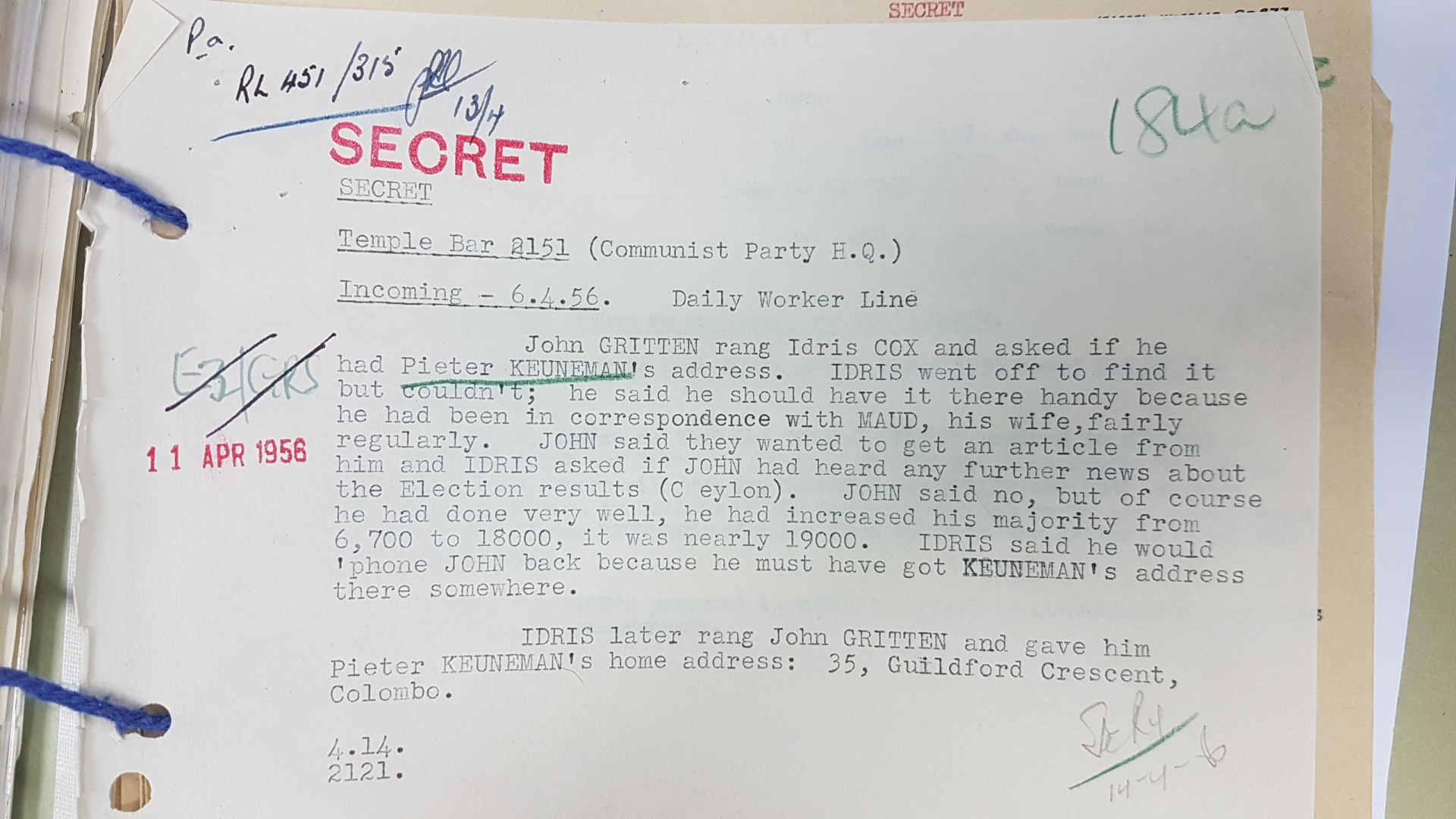This is the last article you can read this month
You can read more article this month
You can read more articles this month
Sorry your limit is up for this month
Reset on:
Please help support the Morning Star by subscribing here
Manny Shinwell: The war secretary with an MI5 file
ONE of Glasgow’s leading socialists Manny Shinwell first came to the attention of MI5 in 1917, when he was picked out for being a conscientious objector to World War I.
Shinwell would go on to become chairman of the Labour Party, nationalise Britain’s coalmines and serve as a minister in charge of British troops in Malaya and Korea — but MI5 remained wary of this remarkable character, whose great-niece is none other than the Lib Dem politician Luciana Berger.
Her relative was described by MI5 as early as 1917 as a “most eloquent and convincing speaker” who had been repeatedly arrested for protesting against conscription in Glasgow.
In a memo seen by the founder of MI5, Major General Vernon Kell, the security service decided to “put up what we do know about this man.”
It was the start of a tumultuous top-secret file in which MI5 recorded Shinwell’s political activity for the next half century.
By 1936, Shinwell was a force to be reckoned with, after taking former prime minister Ramsay MacDonald’s own seat to become a Labour MP.
Local police forces proceeded to transcribe his speeches at rallies around the country and relay them to MI5.
The spooks took note as thousands gathered in Southampton to see Shinwell address an anti-fascist demonstration alongside local Communist Party members, where he urged the government to send military aid to anti-fascist forces in Spain.
After World War II broke out, Shinwell rose to become one of the Labour Party’s most senior politicians, but MI5 continued to spy on whatever contact he had with communists.
At a wartime rally in Doncaster, MI5 noted that Shinwell spoke to a crowd that included “numerous members” of the Communist Party who sang the Internationale “with great gusto.”
With the Communist Party HQ under constant wiretap by MI5, any phone calls from Shinwell to that organisation were carefully transcribed and added to his burgeoning file.
A series of wartime discussions between Communist Party leader Harry Pollitt and Shinwell about a possible Communist-Labour affiliation were of particular interest to the spooks.
It was noted that Shinwell “takes Pollitt’s advice and support,” but he “thought it would be much better if the Liberals, the Independents, the Communists and the Labour Party — between whom, after all, the divisions were not very sharp — could agree to get together and work together.” An idea his great-niece might well baulk at today.
Although Shinwell’s ambitious coalition never materialised, his extensive contact with senior Communists meant MI5 continued to keep a close eye on him, long after the war.
When Clement Attlee’s Labour Party triumphed at the 1945 general election, Shinwell was appointed energy minister and nationalised Britain’s coalmines — much to the delight of the Daily Worker.
In those heady years, the paper’s editor William Rust wanted to run a “rather pro-Shinwell” story and “give him a show” — an editorial discussion between the paper and Communist Party HQ that was snooped on verbatim by MI5.
The security service also seemed to conceal the extent of its surveillance on Shinwell from prime minister Attlee, who “only wished to be told about proven members of subversive organisations.”
However by now Shinwell was becoming increasingly hawkish, serving as secretary of state for war and minister of defence, in which role he supported imperialist adventures in Malaya and Korea before Labour lost power in 1951.

Still, he maintained some sympathy for his old friend and causes, advising Pollitt in 1954 how his son could avoid national service.
The following year MI5 concluded: “Shinwell would not appear to be of security interest today” — but his file remained open well into the 1960s, and his occasional contact with Communist Party HQ, including discussion of funeral arrangements for ailing comrades, was dutifully logged.
It is impossible to tell when the MI5 file on Shinwell was finally closed (he died in 1986 aged 101), as the last sheet of the contents page was redacted by MI5 censors in July 2018, in preparation for being handed to the National Archives.
Some parts of this marathon surveillance session clearly remain too sensitive for MI5 to reveal.
Labour Lion: Konni Zilliacus

ANOTHER Labour MP whom MI5 did not trust was the veteran leftwinger Konni Zilliacus, who spoke nine languages and wrote for Tribune magazine.
He had been under surveillance by MI5 since 1916, when he supported the Bolsheviks.
Between the wars he spent considerable time working for the League of Nations and was recognised as an expert on foreign policy, before entering Parliament as MP for Gateshead in the 1945 Labour landslide.
He often clashed with the Labour leadership’s stance on international issues, and was distinguished by his pro-Tito stance and occasional criticism of the Soviet Union.
His maverick political views meant MI5 continued to keep tabs on him long after he entered Parliament, eager to detect any links to the Communist Party and the Kremlin.
They collated press clippings about his election victory and compiled a “top secret” report on his visit to Yugoslavia as part of a delegation of 11 MPs.
MI5 believed Zilliacus wanted to become an MP to achieve the “overthrow of the British empire” and “was said to be 100 per cent Red.”
One spy surmised: “There is no evidence that Zilliacus is a member of the Communist Party. There is no doubt whatever, however, that his views are more in sympathy with the Communists than official Labour views, particularly as regards to foreign policy.”
His speeches in Parliament won admiration from British Communists, and whenever his name was mentioned in phone calls at Communist Party HQ, including in conversations with Daily Worker editor William Rust, the transcripts were added to his MI5 file.
Even his dinner parties were kept under surveillance, and at one such meal with Labour MPs Richard Crossman and Geoffrey Bing, along with a “thin, haggard, grey-haired Jew” and a woman of “slightly Slav countenance … there was a good deal of serious discussion which took place in subdued tones.”
When Zilliacus was expelled from the Labour Party in 1949 for attending a peace conference in Paris, MI5 eagerly listened in to chatter at the Communist Party HQ over whether Zilliacus would now join their ranks.
One member Beattie Marks said the MP was “frightened to take the step” — a view MI5 believed was “an accurate forecast.”
In another bugged phone call, Communist Party member Sam Aaronovitch (father of Times columnist David) discussed “the distribution of propaganda leaflets” at events where Zilliacus would be speaking.
His enduring popularity among Communists meant that MI5 continued to monitor Zilliacus even after he decided not to join the Communists and set up a Labour Independent Group instead.
Zilliacus was later re-elected as a Labour MP and the last MI5 file on him appears to end in 1949. He died in 1967.
Indian anti-fascist monitored: The Gorpal Mukund Huddar papers

MI5 was not only concerned with Labour MPs and British Communists.
Anti-colonial activists from India and Ceylon were of particular interest.
A security service file on Gopal Mukund Huddar, alias Bala Huddar, reveals that MI5 spied on one of the only Indian men to fight with the International Brigades against Franco in Spain.
Huddar, a trailblazing Indian journalist and Communist, appears to have commanded MI5’s attention for a period spanning 15 years.
One spy described him as having “cat eyes, round face, smart appearance and average height.”
He first came on their radar in 1937, aged 40 and living in London.
From then on his letters were intercepted, meetings monitored and international travel noted.
On July 19 1938, British spies wrote: “It has now been reported from a reliable source that he joined the International Brigade fighting on the government side in Spain and is now a prisoner of General Franco.”
Months later in October, Huddar was freed and returned to England, with one spy pledging to “keep watch on his future movements,” especially any plans to travel to India.
He received a hero’s welcome from a hundred comrades in London, with Daily Worker editor Rajani Palme Dutt chairing a reception of the Indian Swaraj League at Essex Hall on the Strand.
The event was reported in the Daily Worker, and a clipping added to his MI5 file along with an original invitation collected by the Met Police Special Branch which monitored the celebration.
Huddar was regarded as a particular concern to the British authorities because of his potential to “return to India to stir up agrarian and labour trouble.”
As 1938 drew to a close, spies noted that Huddar had moved to Bombay (Mumbai) where he “was met by prominent Indian communists.”
After his return to India, his MI5 file then lapsed until 1952, when the spy agency’s officer in now independent New Delhi was asked to check whether he “still occupies a position in the Communist set-up.”
India’s Intelligence Bureau replied that “Huddar is reported to have been inactive since 1949.”
An MI5 figure responded: “If he has been inactive only since 1949 it would appear that he was active up to 1949 … I think we should open a personal file for Huddar.”
It would take nearly another 70 years before MI5 handed over his file to the National Archives in London, where it can now be viewed almost in its entirety by the public.
Ceylon Communist watched: The Pieter Keuneman files

ANOTHER important figure in the worldwide struggle against colonialism was Ceylonese Communist Pieter Keuneman, who remained on MI5’s radar for 20 years after his country became independent. The surveillance lasted for so long that his MI5 file runs to five volumes.
Keuneman studied at Cambridge where he was president of the Students’ Union. He first came to MI5’s attention in 1937 when Sri Lanka, then called Ceylon, was a British colony.
After independence in 1948, the former imperial power continued to keep tabs on Keuneman in his role as head of the Ceylon Communist Party.
The surveillance remained in place long after he was elected as an MP in Ceylon’s Parliament in 1952.
An MI5 security liaison officer, who was permanently stationed in the British High Commission in Colombo, routinely filed reports about Keuneman’s international travel, health, marriage and political views, occasionally using an agent codenamed SWIFT to supplement his bulletins.
And as the Ceylon Communist Party grew in the 1950s, the country’s nominally independent police Special Branch fed details of its members to MI5.
Throughout all this, Keuneman was regarded as the priority for MI5 in Ceylon because “he is largely the brains of the [Communist] Party. [He] Is well versed in Marxist doctrine, is a facile writer and has the gift of oratory.”
When Keuneman was re-elected in 1956 with an increased majority, MI5 bugged a phone call between Daily Worker journalist John Gritten and the British Communist Party’s HQ, in which Gritten asked for the MP’s contact details in order to interview him.
The following year, one MI5 intelligence officer tried to delete Keuneman’s name from surveillance logs in order to save resources, but he was told that “Keuneman is the most important Ceylonese of security interest by virtue of his membership of the Ceylon Parliament and his being general secretary of the Ceylon Communist Party.”
His visit to England in the summer of 1965 sparked particular interest, as MI5 bugged his meeting with Communist Party members Idris Cox (former Daily Worker editor) and Jack Woddis.
The resulting seven-page transcript shows they had a wide-ranging discussion — frequently drowned out by traffic noise — about the state of different socialist movements around the world, from Kwame Nkrumah in Ghana to the Campaign for Nuclear Disarmament (CND).
But it is the level of surveillance on Keuneman’s personal life that is most striking.
His second wife, Maud Rogerson, had been a prominent member of the Communist Party and was head of a department dealing with colonial affairs.
MI5 and Ceylon Special Branch paid close attention to the break-up of Keuneman’s first marriage, and when he appeared likely to wed Rogerson, the local police told MI5 they would be “grateful for a note on this lady.”
MI5 described her as “a well-educated and imaginative woman who had considerable organising ability and a facile pen … She has made great success among Colonials being fair, sympathetic and always insistent that they should be treated as human beings and not simply political units.”
The spy added: “Her experience as a school teacher has undoubtedly made her a suitable person to deal with inexperienced and susceptible Colonials who visit this country for the first time.”
The paternalistic tone caused some concern for the MI5 man in Colombo, who wanted to share the information with local Special Branch officers.
“We should omit, or substitute some such word as ‘immature’ for the expression ‘child-like,’ as I shall be handing the note to ‘susceptible Colonials’ or their equivalent, who, although they may be averse to the individual about whom we are corresponding, nevertheless tend to resent any implication that their nationals are child-like.”
He added: “I apologise for what may seem like pedantry but the Ceylon authorities are taking a great interest in this case and what we say is likely to be closely scrutinised.”
MI5 continued to monitor Keuneman’s movements until at least March 1968, when he made another visit to England to see his brother-in-law in Liverpool.
The spies noted “it is possible that he will visit his old friends in King Street [Communist Party HQ] … I would be grateful to be informed by telephone should he do so.”
His Christmas card to a comrade in Leeds, Dr Arnold Kettle (father of Guardian journalist Martin), was intercepted by MI5 and a copy taken.
It is not known if MI5 continued to monitor Mr Keuneman beyond 1968, but he remained an MP for almost another decade.
In 1970, he became a housing minister in the left-leaning cabinet of Ceylonese prime minister Sirimavo Bandaranaike.
Her administration was rocked by an ultra-left armed uprising in 1971, in which Keuneman stayed loyal to the government.
In a twist of history, the MI5 security liaison officer in Colombo who had spent so long spying on Keuneman ended up giving extensive counter-insurgency advice to Bandaranaike on how to crush the uprising and keep her cabinet, which included Keuneman, in power. He died in 1997.
 Phil Miller
Phil Miller





